How Young is Too Young to Hire a Tutor for Your Child?
updated August 2022
Enrolling your student in a well-ranked primary or secondary school has never been harder. So it’s no wonder that parents have responded by hiring tutors for their children at younger and younger ages.
Suein Hwang, an education reporter for The Wall Street Journal, discovered that competitive tutoring programs for preschool-age children were attracting more students between the ages of 2 and 4 than ever.
Despite reservations from early childhood development experts, this trend isn’t going anywhere, says Hwang. “Industrywide, Boston education-consulting firm Eduventures forecasts that the estimated $4 billion market will grow an average 12% to 15% a year,” Hwang reports.
But how young is too young when it comes to hiring a tutor for your child? At TutorUp, we believe hiring a tutor is a deeply personal decision. We have certified, experienced early childhood education teachers to tutor your preschool or kindergarten age child.
Here are three questions you can ask if you’re unsure whether your child is ready to work one-on-one with a tutor:
1. What are my child’s needs as an early learner?
Addressing a developmental delay or learning disability: Ages 0 to 5
Each state has early childhood intervention (ECI) programs that evaluate the needs of young children who may have a learning disability or developmental delay. These programs are meant to assess whether a child has a demonstrated learning disability in an area like reading or math, or a developmental delay in an area like speech or movement.
While the process of evaluating your child for a learning intervention program can be a stressful and uncertain time for parents, it doesn’t mean you should panic. Health providers can point you in the direction of state services for young children with developmental delays. Free services, like speech therapy or physical therapy, can help your child address their developmental needs, even from a very young age.
One-on-one tutoring may be appropriate for children in preschool or kindergarten if they have a specific learning disability. TutorUp tutors are certified, experienced teachers who understand what early learners with disabilities need to be successful in the classroom.
A tutor with expertise in Early Childhood Education or Special Needs can give your child the extra support they need to develop foundational learning skills crucial for future success.
Accelerating a child’s academic development: Ages 0 to 5
Few studies show that traditional one-on-one tutoring helps accelerate a child’s academic development from a very young age. In fact, an overemphasis on rote forms of learning, like drills or worksheets, might even prevent young children from developing important skills only acquired through free associated play.
“Instead of focusing solely on academic skills, such as reciting the alphabet, early literacy, using flash cards, engaging with computer toys, and teaching to tests (which has been overemphasized to promote improved test results), cultivating the joy of learning through play is likely to better encourage long-term academic success,” finds a recent study from the American Academy of Pediatrics.
Play helps young children in preschool and kindergarten learn everything from fine motor skills to negotiation, collaboration, and problem-solving – all skills that are important for academic learning down the road.
According to Joan Almon, the executive director of the Alliance for Childhood, attempts to accelerate learning and academic development in young learners can backfire in other ways, too.
“There is absolutely no research showing that children who read at age 4 or 5 do better at age 10 or 12 than children who start reading in first grade,” Almon told NBC. “But there is research showing if you push 4- and 5-year-olds too hard, it backfires.”
As academic tasks in kindergarten become more difficult, for example, student retention often decreases and incidences of bad behavior or absence increase.
If you decide your young child needs additional academic support in the form of one-on-one tutoring, work with your tutor to make developmentally-appropriate goals that tap into your child’s sense of play, imagination, and love of learning.
Preventing achievement gaps: Ages 5 to 10
Working with young children to develop and maintain fundamental reading and math skills is crucial, especially for students from at-risk populations who experience more inequality throughout their educational careers.
These gaps often worsen during after-school and summer vacations, when at-risk children have less access to learning support. Research shows that achievement gaps in children as young as 5 years old can persist well into adulthood if left unaddressed.
One-on-one tutoring, whether through private tutoring or after-school programs, can prevent learning gaps. On its own, however, tutoring isn’t enough to address the social and economic conditions of the achievement gap.
According to one study from the Economic Policy Institute, parents play a big role in preparing their child for academic success. Parental expectations and participation in pre-K learning activities can begin to address learning gaps at home.
The study found, however, that additional support from the community, including teachers, school administrators, and policy makers, is what makes the biggest difference in closing learning gaps caused by inequality.
2. Is my child suffering from a lack of confidence?
Identifying learning disabilities and developmental delays in very young children often ensures students get the help that they need. But even young students with normal academic abilities might benefit from additional emotional support and confidence-building, which an experienced tutor can provide.
Watch for signs of low confidence or low self-esteem in your child, like negative self-talk or giving up when a task is difficult or frustrating. Even if your child is academically capable, a lack of confidence in their own abilities could be a roadblock to future success.
According to Dr. Ken Shore, a school psychologist and the author of Special Kids Problem Solver, students with low self-confidence have difficulty concentrating and taking the creative risks that lead to greater learning.
“Although you cannot teach a student to feel good about herself, you can nurture her self-esteem through a continual process of encouragement and support,” Shore writes at EducationWorld.com.
In addition to strong support in the classroom, one-on-one tutoring can be a great way to address the emotional needs of children as early as kindergarten and first grade. Young students who work with tutors can be coached to develop better problem-solving skills, receive more positive reinforcement, and see visible signs of their progress, all of which improve confidence in the classroom.
Personalized learning also helps students with low confidence by giving them the learning strategies they need to reach their own “ah-ha” moments with difficult material. At TutorUp, our tutors are certified teachers with expertise in Early Childhood Education who know how to identify your child’s most effective learning style, adapt their teaching methods, and provide the positive reinforcement your child needs to achieve success.
3. Is “homework drama” getting in the way of learning at home or in the classroom?
Even though students in primary and middle school don’t face the same set of rigorous academic expectations as high school students, hiring a tutor might help parents work around a sore spot for many families: homework.
According to the Toronto Star, the pressures of completing homework after school can cause perfectly capable students to rebel, struggle, and even fall behind in the classroom – even from a young age.
One-on-one tutoring support from an experienced educator – crucially, a non-family member – can alleviate this pressure on parents, says Diane Montgomery, a Toronto-based tutor and teacher whose son happens to have a learning disability.
“[When] a student is accountable to a third party, they feel they have to produce the results because of that,” Montgomery told the newspaper.
Not only do students who work one-on-one with tutors receive tailored academic support, but they also get more experience working toward goals set by educators who aren’t their parents. This helps frustrated students stay on top of homework, develop confidence in their abilities, and even discover interest in subjects they thought they didn’t like.
Vanessa Vakharia, the founder of Toronto-based tutoring agency The Math Guru, has found that even kindergarten-age children develop early aversions to subjects like math. As young as age 5, students may feel they simply aren’t good at subjects and decide they’ll never develop the skills they need to succeed.
For Vakharia, one-on-one tutoring can change this self-perception. “If you have a kid who’s super sporty and really doesn’t care about school, I like to match him with a tutor who loves sports, but also loves math so they can see, ‘Oh, there’s this type of person that I can be. I can actually like both things,’” Vakharia explained to the Star.
By working with a tutor who has multiple interests, even young children see that it’s possible to develop competency – and joy – in subjects that might frustrate them in school. With increased confidence, these young students not only overcome their dislike of specific subjects, but learn how to persevere in – and out – of the classroom.

